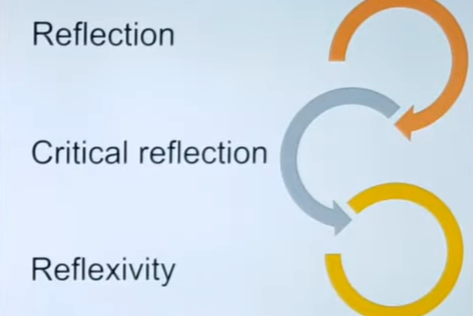Review and reflection should happen across all stages of working with families impacted by domestic abuse.
Review
Seek advice and support from a manger, safeguarding or DA lead/champion within your organisation
Key information should be shared, discussed and recorded which enables continuity of service for families moving between services; ensure risk continues to be managed when workers are on leave and supports with decision making and case oversight.
Discussion should take place about the risk assessment, safety plan and any key actions including safeguarding referrals, MARAC referral, referrals and connection to specialist services.
Risk and need should be reviewed on an ongoing basis including any risk and needs assessments, support and safety plans. Domestic Abuse is dynamic and ongoing and things can change or escalate quickly. DASH Risk Assessments should be reviewed every 3 months or if there is another incident or change in circumstances e.g. separation, pregnancy.
Safety plans and support plans should be reviewed regularly
1. Are there things that were tried that worked well/did not work?
2. Are the plans realistic and manageable for the survivor?
3. Does the plan address the identified risks and the consequences of our interventions – particularly where it is unavoidable that the person causing harm becomes aware that a disclosure has been made e.g. with involvement from statutory social care, police or the survivor ending the relationship or leaving the address (if they live together).
Reflect
Reflection is a vital part of professional practice when working with families. It allows practitioners to pause, consider their actions, and evaluate the impact of their decisions and interactions. Regular critical reflection supports practitioners to move beyond surface-level thinking to question assumptions, power dynamics, and systemic influences that shape practice and outcomes.
The University of Edinburgh Reflectors Toolkit defines reflection as:
“The conscious examination of past experiences, thoughts, and ways of doing things. Its goal is to surface learning about oneself and the situation, and to bring meaning to it in order to inform the present and the future. It challenges the status quo of practice, thoughts, and assumptions and may therefore inform our decisions, actions, attitudes, beliefs, and understanding about ourselves”.
Types of Reflection
Individual Reflection on Own Practice
This involves a practitioner critically examining their own actions, decisions, values, and emotional responses.
How it supports practice:
• Encourages self-awareness of biases, assumptions, and emotional triggers.
• Helps identify gaps in knowledge or skills, leading to targeted learning.
• Promotes ethical decision-making and accountability.
• Enables practitioners to reflect on how they engage with survivors, supporting trauma-informed and strengths-based approaches.
Reflection in Supervision
Structured reflection with a manager or supervisor e.g. case management, clinical supervision.
How it supports practice:
• Provides a regular dedicated space to explore cases, practice and emotional impact depending on the type of supervision.
• Encourages critical thinking and alternative perspectives.
• Supports professional development and resilience.
• Helps ensure practice aligns with safeguarding procedures and organisational values and policies.
Reflection with Colleagues (Formal/Informal)
Occurs in team meetings, peer discussions, or communities of practice.
How it supports practice:
• Fosters shared learning and collective problem-solving.
• Encourages multi-agency collaboration and applying a Coordinated Community Response in practice which is crucial when working with domestic abuse.
• Builds supportive networks, reducing isolation and burnout.
• Enables practitioners to learn from diverse experiences and strategies.
Organisational Reflection
Involves examining the organisation’s values, policies, procedures, and culture and should be informed by lived experience and feedback from practitioners.
How it supports practice:
• Promotes systemic change by identifying barriers to effective intervention.
• Ensures policies are trauma-informed, survivor-centred, and inclusive.
• Encourages listening to lived experience, improving service design and delivery.
• Supports a culture of continuous improvement and accountability.
Further Tools & Resources
Siobhan Maclean
Siobhan Maclean is a Social Worker, practice educator, writer and consultant who has written about and created resources to support practitioners to apply reflection into practice.
Bedfordshire, Luton and Milton Keynes Health & Care Partnership Reflective Supervision Toolkit
University of Edinburgh Reflection Toolkit
The University of Edinburgh have compiled a free online Reflection Toolkit based on a review of research and literature on Reflection.





